The perils of ubiquity
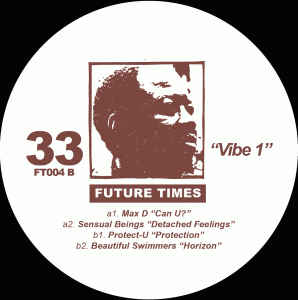 The 10 August issue of The New Yorker has a piece by Alex Ross about the growing number of online retailers offering high-definition music downloads. It’s worth checking out, not least because he mentions David Lang’s hauntingly beautiful Little Match Girl Passion
The 10 August issue of The New Yorker has a piece by Alex Ross about the growing number of online retailers offering high-definition music downloads. It’s worth checking out, not least because he mentions David Lang’s hauntingly beautiful Little Match Girl Passion, and Stile Antico’s equally magnificent recording of Palestrina, Gombert, Lassus and others, Song of Songs
(I have to confess the harpsichord pieces by Jan Pieterszoon Sweelinck he mentions all sound a bit hard to me, but I’m very interested to hear Ann Southam’s “immense, glacial, hypnotic piano work”, Simple Lines Of Enquiry).
Although much of the piece is occupied with the manner in which recording technology is altering what we hear when we listen to music, Ross is also worrying away at another, deeper question, about how we as a culture and as individuals accommodate a situation where the availability of music radically outstrips our capacity to absorb and understand it. As he puts it:
“For a century or so, the life of a home listener was simple: you had your disks, whether in the form of cylinders, 78s, LPs, or CDs, and, no matter how many of them piled up, there was a clear demarcation between the music that you had and the music that you didn’t. The Internet has removed that distinction. Near-infinity awaits on the other side of the magic rectangle. Video and audio stream in from around the world. The other day, I watched Karol Szymanowski’s King Roger, in an interestingly horrible new production from the Paris Opéra (courtesy of the European arts channel Arte); took in Mahler’s Ninth at the Proms (courtesy of BBC 3); and then bought a virtual seat in the Berlin Philharmonic’s Digital Concert Hall, which had an HD video of Simon Rattle conducting Robert Schumann and Bernd Alois Zimmermann, the agility of the camerawork outdoing the robotic Great Performances standard. (Berlin’s harp-cam is especially cool.)
“But these meandering journeys across the Internet soundscape can be taxing. The medium too easily generates anxiety in place of fulfillment, an addictive cycle of craving and malaise. No sooner has one experience begun than the thought of what else is out there intrudes.”
It’s an interesting question (and one I’ve asked myself before). What does the sheer ubiquity of music and content do to our capacity to engage meaningfully with individual works? Nor is it a concern confined to music: only a few weeks ago Jeff Sparrow was asking, not entirely facetiously, whether the internet was destroying his capacity to read books.
As I remarked when I posted on this subject last time, I’m painfully aware these words are inescapably the articulation of a very particular sort of cultural anxiety, and that it’s difficult to ask these sorts of questions without sounding as if you’re engaged in a lament for what we’re losing. But I do think it’s a serious question. Isn’t the intensity of our reaction to a piece of music or writing a function of a deep and powerful engagement with that piece of music or writing? I know the pieces of music that have mattered to me over the years (Glass’ Metamorphoses, Bach’s Mass in B Minor and St John and St Matthew Passions, Brahms’ German Requiem, Strauss’ Last Songs for instance) are all pieces I’ve listened to repeatedly and often obsessively, sometimes over the space of months or years, and that my relationship to them is inextricably wound up in that process of listening and relistening.
But I also know exactly the feeling of restlessness and dissatisfaction Ross describes. usually it’s worst in the car, where I’ll find myself flicking songs over and over again, often before the last one has finished, looking for the next song I want, the song that will be just right. Like being jacked up on caffeine or speed, it’s a state of nervous dissatisfaction which by it very nature denies you the ability to engage with what’s you’re listening to.
Ross suggests, not implausibly, that the resurgence in interest in vinyl over the last decade might be a reaction against the sheer ubiquity of music in the modern world, a way of controlling its impossible profusion and universal availability. I suspect we all have techniques of our own as well, personal systems and listening habits designed to control our burgeoning digital music collections. Nor is it difficult to see something of the same impulse in the creation of systems like iTunes’ Genius function, or music communities such as Mog, both of which are, in very different ways, technologies designed to filter and control what we listen to by offering recommendations. But these systems are also, inescapably, expressions of a need to preserve our ability to engage with music in a meaningful way, and of the cultural equivalent of the oldest rule of economics, that scarcity and value are inextricably connected.
Break text





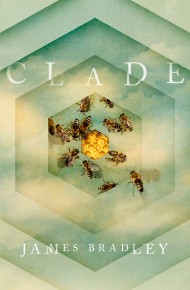

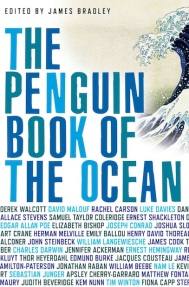
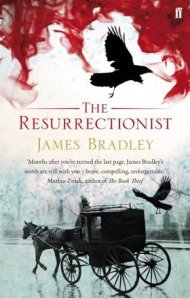
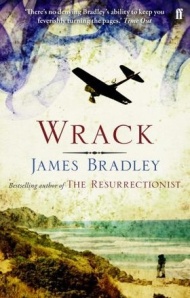
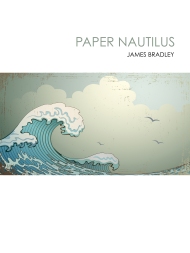
Most intriguing post James and it’s been bothering me since I read it earlier today. I’m not exactly sure why. But I think it’s related to my having witnessed this indefatigable quest for music – exactly as you and Alex Ross describe it – before the advent of digital music and therefore cannot appreciate the causality you/Ross seem to attribute to the new media + restless addictive cycle of longing for music and malaise.
My father has a voracious appetite for music of all sorts and all my life I’ve been witness to his identical insatiability first with vinyl and then cds, the restless search for the best recording of the ultimate production of Wagner, for example. And his quest continues, now with whole new digital vistas opening for him and he still travels the world to hear the best live music, mostly Wagner, and immerses himself in recorded music at every chance.
And his father was the same, going to concerts and opera, playing new music on the piano himself and listening to vinyl, and over his life collecting vast stores of sheet music and records.
Is this restless craving for ever more and new musical experience different from the one you’re talking about?
I definitely think the advent of the internet affects the way we read, because they are such different things – the electronic world in its apparently infinite manifestations and distractions including facebook and twitter vs the finite printed book with its own pre-determined pace and rhythm which demands such different attention spans – but is the availability of ever more music, especially classic recordings such as one of my favourites Das Lied von der Erde with Kathleen Ferrier which Ross mentions, damaging to the way we actually listen to music?
Perhaps I’m missing some crucial distinction. Or can only imagine very marginal cases.
I’m with Jane here, I have experienced a similar anxiety at music festivals where there are many different venues playing simultaneously: Am I in the right place, is there something better happening elsewhere? Are other people having a more profound experience than me?
I think the internet feeds into this type of anxiety but is not necessarily the cause of it.
I think you’re both providing a useful corrective to the sort of anxiety about technological and cultural change I was painfully aware of articulating. There isn’t anything new about this restlessness, nor, if I’m honest with myself, is it a restlessness that’s only afflicted me recently: I’ve always been the kind of person who accumulates books and music faster than they can consume them (indeed I have a quite strict rule about only ever reading one novel at a time and only beginning a new one when the last one is finished to stop me beginning dozens at once and never finishing them).
What’s interesting is that I was recently thinking about these issues in a very different context. In Jeremy Mynott’s book, Birdscapes, Mynott is very clear about the manner in which avid collectors’ impulse to acquire and possess tends to overtake meaningful engagement with the things they’re ostensibly interested in. Mynott’s talking about birds, and the desire of birders to constantly “get” new species (and I don’t for a moment think the choice of verb is accidental) but he’s also very clear that this isn’t a pathology confined to birders, but a feature of collectors of every kind (I think the line is something about there being as many nerds in velvet smoking jackets as nerds with binoculars). For what it’s worth I think Benjamin makes a similar point about book collectors, but I haven’t got the essay to hand to check.
Which does, as Jane points out, rather raise the question of whether there’s anything new about this restlessness, or whether it’s just a contemporary expression of a malaise common to collectors and enthusiasts. My feeling is that it’s probably a bit of both. It’s a condition that’s always been around, but it’s also a response to abundance, and a desire for the experience of object which will fulfill the collector’s need, and which, like all desires, is by its nature unfulfillable, and that as such it’s amplified by the net. Which is, of course, what the sheer wealth and accessibility of information on the net does – allows us to amplify and refine interests and desires we already possessed, whether they’re desires for footage of specific sexual acts, new ways of shopping or making connections with others of similar interests.
Sound fair?
Yes, sounds fair James.
I completely agree with your last point – and with your comment Steven, took me straight to Cockatoo Island 09 – about this being more a contemporary expression of a malaise common to collectors and enthusiasts.
I also thought afterwards that the people we’re talking about, those experiencing these feelings of musical overload and accompanying anxiety, are after all particular cases of rampant enthusiasm, people blessed with/afflicted by extreme musical passion and therefore any new source of music is going to charge them up and make them desperately anxious to consume it all. And in Ross’s case he’s listening to and commenting on music for a living, so would feel it even more acutely.